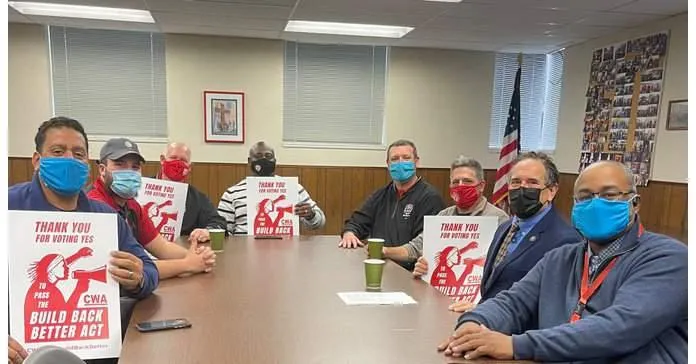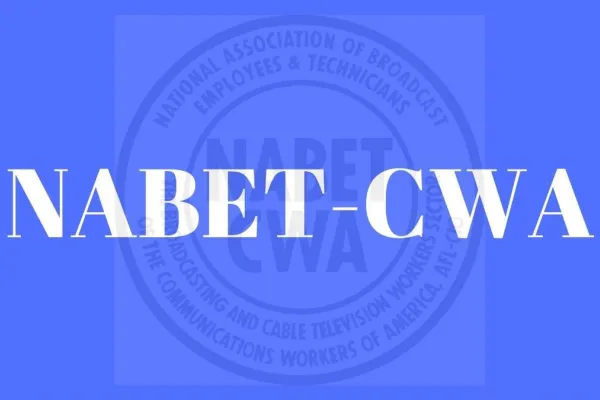CWA Activists Fight for Equitable Broadband Access and Good Jobs

Thanks to the leadership and the activism of CWAers, the recently passed Infrastructure Investment and Jobs Act allocates $65 billion to expand our nation’s broadband networks. This funding will help states across the country bring their telecommunications infrastructure into the 21st century and create new jobs in the process. Since the passage of the bill, the CWA Broadband Brigade and local activists have been mobilizing to ensure states eligible to receive federal funding Build Broadband Better by creating good union jobs and prioritizing closing the digital divide.
In Texas, Robin Johnson (CWA Local 6215), a telecommunications worker and CWA Broadband Brigade member, called on state leaders to Build Broadband Better in an op-ed published by the Austin American Statesman. “That means prioritizing our low-income communities and Tribal areas, subsidizing the costs of services for the most vulnerable, and using trained union technicians who know how to build broadband infrastructure right the first time, not subcontractors that service providers hire to trim costs, who often cut corners, don’t know the equipment, and end up costing taxpayers more in the long-run,” she wrote.
In Michigan, local activists from CWA District 4 joined Congressman Andy Levin (D-Mich.) for a Infrastructure Investment and Jobs Act Broadband Roundtable. During the discussion, the CWA activists celebrated the passage of the bipartisan bill but cautioned that the funds must be invested in long term solutions and not just provide band-aids to our outdated system. The group also discussed the importance of passing the Build Back Better Act with pro-union provisions, including imposing meaningful penalties on employers who violate the health and safety of workers and their right to organize.
State and local governments will play a key role in deciding how to spend the infrastructure bill’s broadband funding. A new report commissioned by CWA and released by CTC Technology & Energy highlights public-private partnership strategies that have proven successful when deploying broadband in rural and other overlooked communities. “Communities can use their procurement authority to determine where broadband is most needed and ensure the buildout is done right,” said CWA President Chris Shelton. “This means working with companies that employ highly trained and experienced local union workers who know the area and the infrastructure. It also means building out high-speed fiber connections that can provide the necessary bandwidth today and in the future to meet households’ growing data needs.”

CWA District 4 activists met with Congressman Andy Levin (D-Mich.) for a broadband expansion roundtable.
NABET-CWA / NBCU-VERSANT MEDIA, LLC (MS NOW) NEGOTIATIONS


